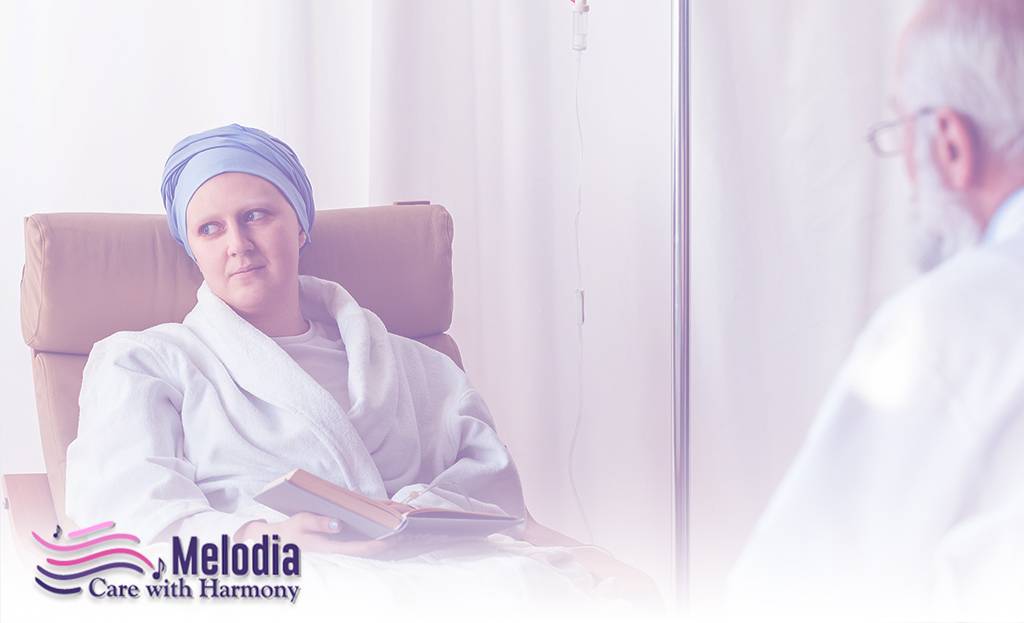At the end of life, an increasing number of people elect hospice care. Hospice care is available in several environments including your home, nursing home, residence center and hospital. Certain disorders or major illnesses, such as Glioblastoma, may become incurable at some point. Hospice was created to address this predicament.
What is Glioblastoma and how does hospice care provide both complete comfort care and family support?
What Is Glioblastoma?

Glioblastoma (formerly called glioblastoma multiforme or GBM) is the most prevalent primary brain cancer in adults. GBM, commonly known as the multiforme glioblastoma is a common and aggressive tumour in the brain or spinal cord. GBMs most frequently occurs between the ages of 45 and 70. However they can also occur at any age. By limiting tumor growth, evolving treatment can help individuals live longer.
GBMs can develop in the brain spontaneously or as a result of lower-grade astrocytoma. GBM is most frequently found in adults in the cerebral hemispheres, particularly the frontal and temporal lobes of the brain. GBM is a lethal brain cancer that, if left untreated, can end in death within six months or less; thus, it is critical to seek specialist neuro-oncological and neurosurgical care quickly, since this can have an effect on overall survival.
GBMs present distinct treatment challenges as a result of the following:
- Tumor localization in the brain
- Resistance to conventional therapy is built-in
- The brain’s limited capacity for self-repair
- Malignant cells migrate into neighbouring brain tissue
- The tumor’s blood supply is frequently interrupted, impeding efficient medicine administration.
- Capillary leakage from the tumour, leading in fluid collection surrounding the tumour (peritumoral edoema) and intracranial hypertension
- Seizures caused by tumours
- The neurotoxicity associated with glioma therapies
What Is the Occurrence of Glioblastoma in Hospice Patients?

Unlike illnesses like breast cancer, GBMs have a predictable course of progression in which the onset, progression and symptomatic load can vary greatly between individuals. Because many GBM patients seek hospice care in advanced stages with considerable symptom load, a sizable proportion prefer to receive treatment in an inpatient hospice setting rather than at home.
What Is the Effect of Glioblastoma on the Body?

GBM symptoms vary depending on the tumour size and location. For example, tumours that grow in the right side of the brain might produce left side paralysis. Additionally, linguistic and visual abnormalities may occur.
Another set of symptoms is associated with mood fluctuations, which include elevated rates of anxiety and sadness. Sometimes these mood fluctuations are a result of confronting the disease and its high mortality rate but they can also be prompted by the disease’s associated loss of function (speech, vision, etc.).
Seizures are another significant danger and patients are typically prescribed drugs to manage and/or alleviate these symptoms. Additionally, headaches, nausea and exhaustion are frequent symptoms.
Incidence and Prevalence

Glioblastoma is the most frequent type of malignant brain and other central nervous system (CNS) tumour, accounting for 47.7% of all cases. The incidence of glioblastoma is 3.21 per 100,000 population.
The median age of diagnosis is 64 years, and men are more likely to be diagnosed than women. Survival is dismal, with around 40% surviving one year after diagnosis and 17% surviving two years.
Prior therapeutic radiation, lowered susceptibility to allergies and poor immunological response are all risk factors for glioblastoma. Numerous genetic cancer syndromes, including Li-fraumeni and Lynch syndrome, significantly enhance the risk of glioblastoma.
Symptoms

The symptoms of a brain tumour vary according to the location of the tumour but may include the following:
- Headaches that persist
- Doubtful or distorted vision
- Vomiting
- Appetite loss
- Mood and personality changes
- Changes in the capacity for thought and learning
- Seizures with a new onset
- Gradual development of speech difficulty
What Treatment Options Are Available?
Surgery is one therapeutic option. If the tumour is treatable, surgeons will attempt to remove or debulk it. Chemotherapy, as well as whole brain radiation, can be used to decrease tumor’s. Additionally, newer medicines, such as immunomodulating drugs, can inhibit growth.
Because all treatments have an effect on quality of life, patients are asked what their criterion for quality of life is. Which of the following are non-negotiables for you in order to live comfortably? While advance care planning conversations cannot cover every possible scenario, they can help evaluate the overall picture of quality of life. This can aid in the development of the finest possible direct care choices in the future.
Hospice Care

Hospice is a kind of treatment that starts when the life expectancy of a person is less than six months. The purpose of Hospice Care is to offer comfort and support while ceasing all treatments. Hospice care might be delivered at a patient’s home comfort or in a medical Center.
Hospice’s objectives are as follows:
- Assist you in living comfortably at the end of your life.
- Assist you and your family in adjusting to the changes that are occurring.
- Assistance till end of life.
You may wish to seek hospice care if the cancer no longer responds to treatment and you want to focus on the management of your symptoms your quality of life. Additionally, you may consider it if the cost of treatment outweighs the benefit. Choosing to enter hospice is entirely up to you. Your doctor may examine your and your family’s hospice care, since it can be the greatest option to meet your current needs.
Hospice care is provided by a multidisciplinary team of healthcare specialists who are experts in their field. Your care plan is overseen by a hospice physician. Daily care is provided by nurses and home health aides. You can receive assistance with physical needs, meal preparation and light housework. You may see a chaplain, social worker or physical therapist as needed. Volunteers may also be a part of hospice care.
Hospice care is available in a variety of locations, including the following:
- In a facility for assisted living
- In a nursing facility
- In an institution for long-term care
- In a hospital specializing in palliative care for cancer patients
- Medicare, Medicaid or private health insurance may cover hospice care. Consult your insurance company for details about your coverage. Generally, medications to assist you in managing your symptoms and equipment such as a shower chair and commode (portable toilet) are covered as part of your care.
- Hospice care is typically provided 24 hours a day if you are hospitalized to an inpatient hospice unit.
If you receive hospice care at home, it is unlikely that you will receive 24-hour nurse care. Your hospice team will assist your family with your care. A nurse is available 24 hours a day to assist you or a member of your family by phone. Typically, a home health assistant is supplied for a limited number of hours each week. If you require additional assistance at home, you may be required to pay for it.
If you choose hospice care, your hospice nurse will inform you of the services that the hospice can and cannot give. Inquire your case manager about hospice care available in your region.
How Can Melodia Care Assist You?
Melodia Care provides medical care to patients who have been diagnosed with a terminal illness. The emphasis is on relieving the stress and symptoms of a serious disease while also attending to the physical, emotional and spiritual needs of the patient and family members.
Regardless of where you call home, Melodia Care can assist you in managing pain and other advanced illness symptoms.
To schedule a consultation, speak with your doctor about scheduling one with Melodia Care or call us at 1- 888 MELODI-7 and we will contact your doctor on your behalf.
You can reach Melodia Care at any time of day or night by contacting us through our 24/7 online customer support chat or by calling 1-888 635-6347 (MELODI-7).










